About Us
Our History
The Lost Ladybug Project was set in motion in the year 2000 when Cornell researchers coordinated with 4-H Cooperative Extension Master Gardeners surveying ladybug populations across New York State. Later the researchers collaborated with graduate students from the Cornell Institute for Biological Teaching to develop ladybug survey projects for children. Field-testing these projects with students at a small number of elementary schools in New York State in began in 2004. One of the first major discoveries came in 2006 when Jilene (then 11 years old) and Jonathan (then 10 years old) Penhale found a rare nine-spotted ladybug (Coccinella novemnotata) near their home in Virginia. (See details on the ninespotted ladybug and the twospotted, too) They just happened to be in the company of parents of a Cornell entomology student who had heard of the Lost Ladybug Project. This was the first ninespotted ladybug seen in the eastern U.S. in 14 years! Their finding confirmed that the species was not yet extinct and that with enough people working together this and other rare ladybug species could be found. With this discovery, and after developing survey methods, a core database, and a beginning children’s project, we were granted funding by the NSF Informal Science Education program in 2008. (Click to view our NSF Project Description, Proposal Summary and descriptions of selected publications.)
Researchers from South Dakota joined the Lost Ladybug quest early on and the project now collaborates with both 4-H and DiscoverLife.org. Now anyone in North America has the opportunity to join the exciting search for rare species and make a tangible contribution to the conservation of these beautiful and useful creatures.
Our Educational Mission
To help children become confident and competent participants in science, identifying personally with science, so that we develop a generation of adults who are engaged in scientific discussions, policy, and thinking. Click here to read more about the educational impact of the Lost Ladybug Project.
Ithaca, New York Team
-
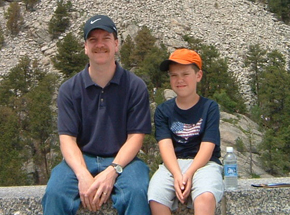
John Losey (here with his son, Ben)
John Losey (here with his son, Ben), an associate professor in the entomology department at Cornell University, is the founder and director of the Lost Ladybug Project. Dr. Losey has published technical papers on the decline of native ladybugs in America, the rediscovery of the 9-spotted ladybug, the ecological role of ladybugs as predators and the economic value of ladybugs and other beneficial insects. He is a firm believer that citizen science is the best way to educate and enthuse volunteers about the process of science and the best way to shed light on major environmental problems.
-
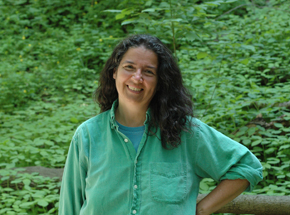
Leslie Ladd Allee
Leslie Ladd Allee is director of curriculum development and outreach, including to youth in underserved communities, for the Lost Ladybug Project. She manages the project budget and administration. Leslie joined the development of the Lost Ladybug Project in 2005. She holds a PhD in Entomology from Cornell University (2001) and has focused her research on alternatives to insecticides, primarily in corn. The Lost Ladybug Project gives her a way to combine her beetle expertise with her passion for outdoor play.
-
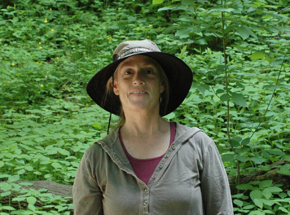
Rebecca Rice Smyth
Rebecca Rice Smyth shares outreach and curriculum development for the Lost Ladybug Project with Leslie as well as handling data management and website development. Her background includes both research in Latin America and inquiry-based curriculum development for middle school biology students and she combines these skills to promote participation in the Lost Ladybug Project among children in migrant worker families in New York State. She holds a PhD in Entomology from Cornell University (2002) and has been studying chrysomelid leaf beetle ecology since 1998.
-
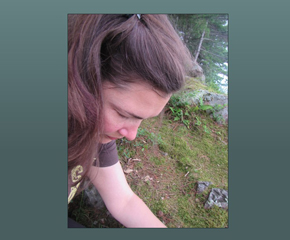
Leah Tyrrell
Leah Tyrrell became involved with the Lost Ladybug Project in 2009, when she rediscovered Adalia bipunctata in Buffalo, NY. Leah is a NY Master Naturalist and a graduate of Buffalo State College where she majored in Environmental Conservation and Natural History, with minors in Geography, Biology, and Environmental Science. Leah has been the LLP outreach and Coccinella novemnotata reintroduction specialist in the Buffalo, NY area and Thousand Island region. Leah is interested in native plant-insect interactions and restoration. She has worked with Allan Jamieson Sr, Director at Neto Hatinakwe Onkwehowe (U.S.) a Native arts and cultural not-for-profit organization.
-
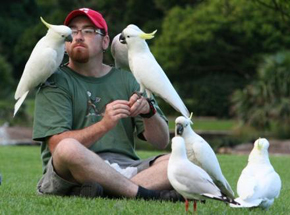
Leo Stellwag
Leo Stellwag was a Ph.D. student in John Losey's lab in the Department of Entomology at Cornell University. His research focused on the behavioral ecology of the multicolored Asian ladybug, Harmonia axyridis. He has always been fascinated with animal behavior and thinks insects are some of the most beautiful and amazing creatures to study. He believes that the best way to learn about insects is to watch them in action. One day Leo hopes to teach at a university and travel all over the world to study the behavior of bizarre and exotic insect species.
-
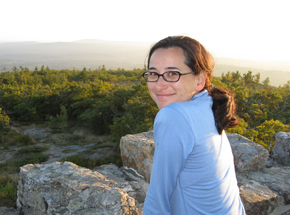
Mia Park
Mia Park is also a graduate student in the Losey lab. She is interested in pollinator ecology and conservation, especially in agricultural landscapes. Mia grew up loving nature and wanting to protect it, so she studied environmental sciences as an undergraduate and received a masters in invasion biology. Her Ph.D. work will explore how to manipulate orchard landscapes to help support native bee populations. Little is known about the importance of pollen chemistry as a cue for bees to visit a flower, nor in the overall health of native bee populations. Mia will be exploring these questions in New York old fields and at the margins of apple orchards.
-
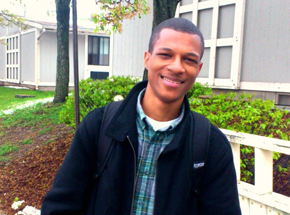
Rakim Turnipseed
Rakim Turnipseed is a graduate student in John Losey's in the Department of Entomology at Cornell University. Broadly, his interest lies in conservation biological control. He currently studies competition between the declining native nine-spotted lady beetle, Coccinella novemnotata, and the invasive seven-spotted lady beetle, C. septempunctata. He holds a BS in Entomology and Nematology from the University of Florida. While there, he worked for the U.S. Department of Agriculture where he investigated biological control of the invasive red-imported fire ant. Rakim hopes to become a research entomologist for a government agency or teach at the university level.
-

Samuel Ramsey
Samuel Ramsey is an undergraduate student who has been working with the Losey Lab since the inception of the Lost Ladybug Project. He's very interested in predatory insect behavior (specifically beetles and praying mantids) and insect defensive mechanisms. Samuel has been interested in entomology since he was 7 and he wants to spread his infectious enthusiasm to the general public. He's planning to pursue his PhD and he hopes to one day have an entomology themed show on Animal Planet. Samuel is currently studying biting behaviors in ladybeetles
-
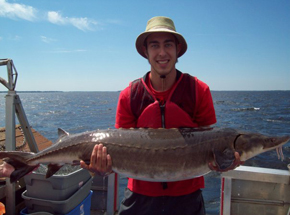
Jamie Kopco
Jamie Kopco is an Entomology and Natural Resources double major in the class of ’11. In Dr. Losey’s lab he maintained colonies of ladybugs, collecting ladybugs, and conducting research on the implications of food shortage or overabundance for ninespotted and sevenspotted ladybugs. He also followed Eric Denemark’s washup study, attempting to determine if ladybugs constitute a major ephemeral food source for aquatic predators. Jamie hopes to ultimately study aquatic invertebrates, but would be equally satisfied with a career in agricultural entomology or fisheries biology.
-
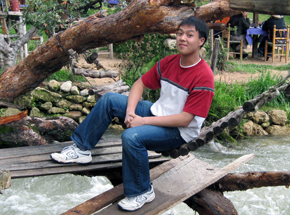
Jason Lai
Jason Lai is an undergraduate biology major in the Losey lab. He is particularly interested in ecology and evolution and is conducting research on competition between ninespotted and sevenspotted ladybugs. He hopes that his findings will shed light on why ninespotted ladybugs disappeared from the northeastern United States. A native of New York City, Jason came to Cornell to explore a different setting from home and has since learned to love the wide and fascinating world of insects.
-
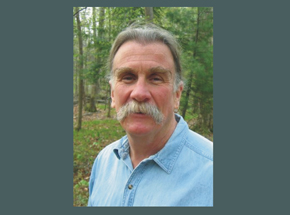
Scott Perez
Scott Perez (team member 2008-2010) was the Tribal Liaison for the Lost ladybug Project. After a 25-yr. "spring break", Scott returned to school, receiving a BA from Fort Lewis College in Durango. Colorado in 2002 and his MS in Natural Resources at Cornell in 2005. He is currently working on his PhD dissertation at Cornell. Working with the Lost ladybug Project gave Scott an opportunity to use his own multi-cultural background and experiences in conjunction with science to bring opportunities to youth in our Native communities.
-
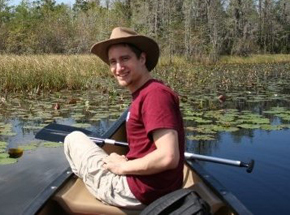
Eric Denemark
Eric Denemark (team member 2008-2009), an entomology major, graduated from Cornell in 2009. His research in Dr. Losey’s lab focused mainly on a phenomenon known as ladybug washups, but he also helped in collecting and identifying coccinellids for the Lost Ladybug Project. His favorite classes were all centered on the process of evolution, and he enjoys thinking about life from unusual theoretical perspectives. Eric is in graduate school in forensic entomology at Texas A&M.
-
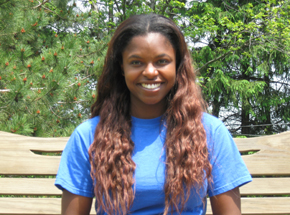
Whitney Rachel Alexandra Singley
Whitney Rachel Alexandra Singley (team member 2009) was working with the Lost Ladybug Project on a summer internship which involved traveling and outreach to schools, nature preserves, and other community areas. She graduated from Wells College in Aurora, NY (May, 2009) with a B. A. in environmental science and a minor in history. During her last year at Wells she completed an undergraduate thesis on the foraging behavior of Harmonia axyridis. Rachel also worked with the Cayuga Lake Watershed Network. She loved the Finger Lakes region, but has moved to California where she works for the Ecological Society of America.
-
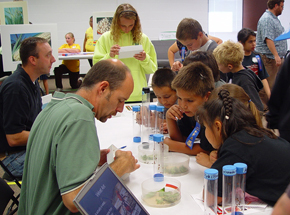
Louis Hesler
Louis Hesler is a Research Entomologist at the USDA's North Central Agricultural Research Laboratory in Brookings, SD. He conducts research on soybean aphids, cereal aphids, and their natural enemies, including lady beetles. He conveys research findings and knowledge of insects to various groups ranging from school-age children to scientists to farmers through presentations at meetings, field days, laboratory tours, and school visits. The Lost Ladybug Project provides an excellent opportunity for him to promote the importance of lady beetles in keeping aphids and other pests in check, and it allows him to interact with citizen scientists and the general public on this fascinating group of beneficial insects.
-
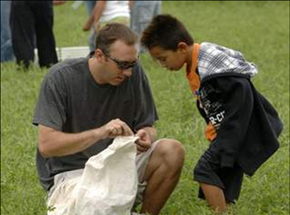
Eric Beckendorf
Eric Beckendorf (here with Diego) is a Biological Science Research Technician employed by the United States Department of Agriculture Agricultural Research Service North Central Agricultural Research Laboratory located near Brookings South Dakota. He holds a Masters degree in Entomology from South Dakota State University (2005). His research has focused on soybean pest (soybean aphid and bean leaf beetle) and beneficial insects that help control these pest. The Lost Ladybug Project gives him an opportunity to conduct research as well as teach children about insects and habitats that they may never learn about in school.
-
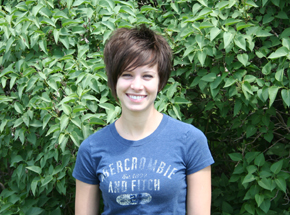
Sara Haberling
Sara Haberling works under Dr. Louis Hesler at the United States Department of Agriculture - Agricultural Research Service - North Central Agriculture Research Laboratory near Brookings South Dakota. Sara attends South Dakota State University (Nursing). She is interested in spending time with family and friends, being outdoors, and trying new cooking recipes. Her favorite part of being involved in the Lost Ladybug Project is educating the public about lady beetle diversity, habitats, and life cycles, as well as the natural benefits that lady beetle provide to agricultural producers.
-
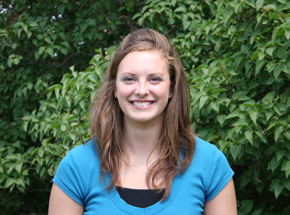
Sara Ackman
Sara Ackman works under Dr. Louis Hesler at the United States Department of Agriculture - Agricultural Research Service - North Central Agriculture Research Laboratory near Brookings South Dakota. Sara attends South Dakota State University (Consumer Affairs minor Agricultural Business). Sara enjoys working outside, gardening, and working on the family farm. Her favorite part of working with lady beetles is learning how diverse the lady beetle species are, and what part of the country they tend to live.
-
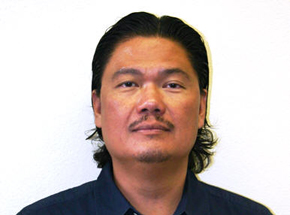
Michael Aguilar Catangui
Michael Aguilar Catangui (team member 2008 - 2010) was member of the Lost Ladybug Project team based in South Dakota and conducted outreach to youth in underserved communities in South Dakota and surrounding Midwestern states. He holds a Ph.D. in Entomology from University of Nebraska (1992) and has research and outreach programs dealing with emerging insect pests of genetically-modified crops. The Lost Ladybug Project enabled him to pursue his interests in ladybug survey, conservation, and the economic value of ladybugs in agriculture.
